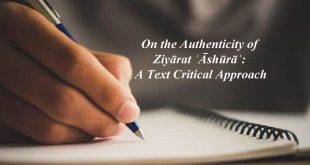This workshop explores Shi’ism and Muslim confessionalisation from a global historical perspective, with a special focus on migrations and connections across borders and continents.
Its main objective is to flip the central dichotomy at the heart of work on global trends in Islam to date: rather than asking how Shi’i communities globally have been influenced and shaped by religious, political and intellectual developments occurring in the Shi’i heartlands of Iran and southern Iraq, it seeks to understand how processes of Shi’i sect-formation and modern trends in Shi’ism – intellectual, cultural, political and theological – have been shaped by the reality and perception of a global Shi’i public, stretching across the Middle East, Iran and South Asia, but also in Africa, Europe, North America and South America.
The early modern transnational connections which enabled the formation and coherence of the Shi’i world stretch from India, through Iran and on to southern Iraq, Lebanon and the Arabian Peninsula. The scholars, merchants and pilgrims sustaining these connections were highly mobile, multi-lingual trans-national actors. But from at least the beginning of the twentieth century, these well-established trans-regional connections were complemented by new migratory pathways, across and between colonial empires and into the new worlds of North and South America.
Migration to Europe, the Americas and East and West Africa posed challenges and opportunities for Muslim migrants from the Middle East and South Asia, as they struggled to assert their Islamic identity in majority Christian societies. While intra-Islamic confessional identity was often tempered by the homogenising experience of migration, it was not long before transnational Shi’i identities, institutions and networks crystallised, undergirding what might be called global Shi’ism today. The central concern of this workshop is to interrogate this transformation.
Organized under the umbrella of the ERC-funded Moving Stories project at the University of Oxford, the workshop will sit at the intersection of histories of movement, migration, religious-political thought and sect-formation. It will situate stories of diaspora, displacement and integration within the broader history of mid-twentieth century Shi’i revivalism and reform.
Modern trends in Shi’ism are conceived as processes of communal identity formation, mass conversion, politicisation and institutionalisation. Often denoted with the controversial epithets ‘sectarianism’ or ‘sectarianisation’, these interlinked phenomena provide a framework for differentiating Shi’i religious cultures of the pre-modern era from those emerging since the nineteenth century. Yet while a rich literature exists on the tomes and journals which propagated modern Shi’i intellectual production, such work is generally siloed from the parallel historical phenomenon of mass migration in the global Middle East.
With these issues in mind, the workshop seeks to answer the following broad questions: what human, cultural and intellectual connections were sustained between the diverse localities to which Muslims migrated in the nineteenth and twentieth century and the Shi’i heartlands of Lebanon, Southern Iraq and Iran? What similarities and differences can we discern about the historical development of Shi’ism and intra-Islamic relations in each context? What methodological difficulties do we confront as historians trying to piece together the patchwork of global Shi’ism in the nineteenth and twentieth centuries? To what extent can we frame Shi’i modernist thought as a global discourse? How does this approach help us to understand processes of politicisation and the development of Shi’i Islamist politics? Where does Shi’ism fit in within the emergent unruly discipline of global intellectual history?
Important Data
Dates: Thursday 3 to Friday 4 April 2025
Location: University of Oxford
Convenor: Dr Christopher Cooper-Davies, Faculty of History, University of Oxford
Call for Papers Deadline: 31 October 2024 (Please send a 400-word abstract and CV to movingstories@history.ox.ac.uk)
We welcome 400-word abstracts on the following broad topics:
- The history of Shi’i diasporas, communities and traditions in North America, South America, Europe, the Caribbean, Africa, Asia and beyond.
- Global approaches to the study of Shi’i intellectual and political thought.
- Micro-histories of mobile Shi’is in the nineteenth and twentieth centuries.
- Shi’ism and geopolitics before 1979.
- Shi’i institution building between the Middle East and the Mahjar.
- Comparative Approaches to Shi’i and non-Shi’i sect-formation and sectarianism in global perspectives.
- Methodological work on the challenges of writing a global history of Shi’ism in the mid-twentieth century.
The workshop will take place over two days on Thursday and Friday 3 and 4 April 2025 and will include 15-minute presentations from all the participants, followed by a 45-minute discussion. Participants will be required to submit a c. 5,000–8,000-word paper by 28 February 2025 for circulation among the participants. The bulk of the session will be dedicated to discussion of the pre-circulated papers, which means all participants will have to attend having read all the papers. It is our ambition to collate these contributions into a special journal issue or edited volume.
We will be able to provide a contribution to travel costs to and from Oxford for the participants, as well as accommodation for two or three nights. Those participants with access to funding from their home institutions will be asked to contribute towards their travel costs in order to enable the participation of early career researchers.
If you would be interested in participating, please send a single PDF file containing a 400-word abstract and CV to movingstories@history.ox.ac.uk by 31 October 2024.
Please direct any questions to the workshop convenor, Dr Christopher Cooper-Davies, at christopher.cooper-davies@history.ox.ac.uk
 Ijtihad Network Being Wise and Faithful Muslim in the Contemporary World
Ijtihad Network Being Wise and Faithful Muslim in the Contemporary World
